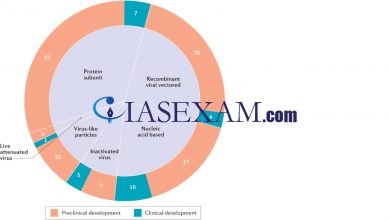Daily News Analysis
BCAS issues security guidelines for drone operating systems
Aviation security regulators BCAS has issued guidelines for drone operating systems, which act like cockpits on the ground to remotely pilot the unmanned aerial vehicle.
The BCAS has listed out rules that should be followed for cyber security, storage facility, training and background check of staff for drone operating systems or remotely piloted aircraft systems.
Key Highlights
- A remotely piloted aircraft (RPA), its associated remote pilot station, its required command and control links and any other components constitute a remotely piloted aircraft system (RPAS).
- An RPA or drone is in nano or mini category if it has weight less than 250 grams. If its weight is between 250 grams and 2 kg, it is in the micro category.
- According to BCAS, the remote pilot station in the RPAS is of “fixed and exposed” nature as opposed to the “restricted nature” of a commercial plane where the intrusion and use of heavier weapons is less likely.
- Therefore, further consideration must be given to the “potential vulnerability” of the premises of the remote pilot stations against unlawful interference, it added. “The aircraft (drones) itself shall be stored and prepared for flight in a manner that will prevent and detect tampering and ensure the integrity of vital components,” it noted.
- Safety and security of data and communication links and services are equally important as those for the drones and their remote pilot stations, as per the guidelines said.
- Each RPA and RPAS operator must establish, implement and maintain a security programme, based on the aforementioned guidelines, and it must be submitted to BCAS before its operation, according to the guidelines.
- The operator of RPAS must obtain relevant permissions from the local administration and the Directorate General of Civil Aviation (DGCA) before operating the RPAS, the guidelines said.
- From June 8, the Civil Aviation Ministry has started the registration process for non-compliant drones which were not registered with the DGCA and have not been granted the drone acknowledgement numbers (DANs).
- It gave a similar one-time opportunity for voluntary disclosure of such drones between January 14 and January 31.
- A total of 19,553 non-compliant drones were registered during that period. On June 5, the ministry had issued draft rules for manufacturing and use of drones in the country wherein it has proposed that an authorized drone manufacturer or importer can sell its devices only to an individual or entity approved by the DGCA.
- It will issue the final rules once it deliberates on comments received from all the stakeholders on draft rules.
SOURCE: The New Indian Express





.png)



